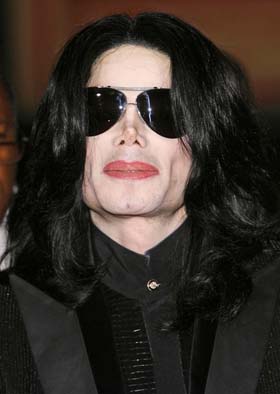 LOS ANGELES – Prospective jurors in the trial of Michael Jackson’s doctor have disclosed in writing their views about prescription drugs, doctors, celebrities in court and the life and death of the entertainer.
LOS ANGELES – Prospective jurors in the trial of Michael Jackson’s doctor have disclosed in writing their views about prescription drugs, doctors, celebrities in court and the life and death of the entertainer.
The 29-page jury questionnaire released Thursday explores whether prospective jurors are fans of the pop singer, attended his concerts or memorial service, bought his records and whether they saw his posthumous concert film, "This is It."
The prospects were asked to disclose their positive or negative feelings about Jackson and Dr. Conrad Murray, who is charged with involuntary manslaughter in Jackson’s death. They were also asked their knowledge of drugs allegedly taken by Jackson.
A total of 170 people who said they can serve on the two-month trial filled out the questionnaires and will return May 4 for in person quizzing.
Superior Court Judge Michael Pastor, who has already screened 340 prospects and cleared 147 of those for availability, summoned the third panel of potential jurors to make sure there will be enough people to choose from when in-depth questioning begins next month. Ultimately, 12 jurors and six alternates will be chosen.
Pastor has set opening statements for May 9.
Murray was introduced Thursday to prospective jurors, along with lawyers.
On Wednesday, defense lawyers disclosed a new component of their case – a claim that Jackson was on the brink of financial ruin and feared he would be unable to fulfill his commitment to a concert tour because of severe insomnia.
Attorney Edward Chernoff posed the theory that Jackson was so distraught over his inability to sleep that he took "desperate measures."
Defense lawyers previously suggested the pop star might have self-administered an overdose of the anesthetic propofol while Murray was away from his side.
While seeking access to Jackson’s financial records, Chernoff added that the singer was in anguish over his financial situation and faced ruin if he failed to perform during the upcoming tour.
"The crux of the defense is going to be that Michael Jackson engaged in a desperate act and took desperate measures that caused his death," Chernoff told the judge. "We believe at the time Michael Jackson died he was a desperate man in relation to his financial affairs."
Deputy District Attorney David Walgren accused Chernoff of trying to distract from the main issue of the trial – whether Murray acted with gross negligence when he gave Jackson propofol and other sedatives on the day he died.
"This is an irrelevant sideshow designed to take issues away from the jury and smear Michael Jackson," Walgren said. "It has nothing to do with the case on which Dr. Murray is being prosecuted."
Murray has pleaded not guilty to involuntary manslaughter. He is accused of gross negligence in administering propofol, an anesthetic not intended for home use or as a sleep aid. Jackson died of an overdose of that drug and other sedatives.
Attorney Howard Weitzman, who represents the Jackson estate, questioned the defense theory.
"Is the theory that Michael Jackson committed suicide, took his own life?" Weitzman asked. "I don’t think that’s a salable theory."
Defense lawyers have never used the word suicide and implied Jackson’s death was accidental but self-inflicted. At a preliminary hearing for Murray, the singer was quoted by a witness as saying if he didn’t sleep he would have to cancel the tour.
Chernoff’s attempt to see Jackson’s financial records was blocked by Judge Pastor, who said he would not allow such a "deep sea fishing" expedition.
"I’m not going to turn an involuntary manslaughter trial into some kind of an escapade in analysis of the finances in Michael Jackson’s entire life," Pastor said.
Copyright © 2011 The Associated Press. All rights reserved.